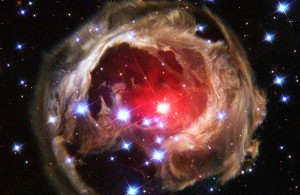 Jim Holt’s new book, “Why Does the World Exist?, tackles the most basic question we humans could ever contemplate: why is their something instead of nothing? It’s the most perplexing challenge for philosophers and scientists alike (“We are at least five Einsteins away from answering that question.”). For Christians, the perplexity provides ironic comfort. The best answer anybody can generate as to “why something” is “God only knows.” Amen.
Jim Holt’s new book, “Why Does the World Exist?, tackles the most basic question we humans could ever contemplate: why is their something instead of nothing? It’s the most perplexing challenge for philosophers and scientists alike (“We are at least five Einsteins away from answering that question.”). For Christians, the perplexity provides ironic comfort. The best answer anybody can generate as to “why something” is “God only knows.” Amen.
Holt, like any high-minded human, is dissatisfied by this monosyllabic, monotheistic fall back response. Seeking out a cadre of philosophers, and devoting a chapter to each, he discovers a number of alternatives: the more significant strangeness of nothing ( “a closed spherical spacetime of zero radius”), the possibility of a multiplicity of universes, nothingness canceling itself out for the sake of being (a la Heidegger), all sorts of complicated math equations.
Holt readily admits to being a disenchanted Christian. “I was brought up in a religious family, so the stock answer was that God made the world, and God himself existed eternally by his own nature. As a teenager I started to doubt this theological story.” Traveling instead the road of existentialism, he came to regard faith, or at least the less-than-intellectually-rigorous kind, as “a matter of wishful thinking or wallowing in cheap contentment.”
I haven’t read the book yet, it’s in the stack, but based upon the reviews and interviews I have read, it seems that Holt ends up where every other philosopher and scientist currently resides: discontentedly banging their head against a wall. Heidegger, who made a career out of wrestling with the question, was driven nuts by it. This leads to the obvious conclusion: what’s so bad about cheap contentment?
British philosopher Derek Parfit tackles the question from the vantage point of the fine-tuned nature of the universe. Certain elemental forces must exist exactly as they exist in order for being as we know it to be. Ergo the follow-up: How did this unique fine-tuning occur?
The cheap answer is that God finely tuned the universe. The preferred answer is that there are an endless number of universes out there, so to have one like ours is statistically probable. The problem is that statistically speaking, the existence of an endless number of universes is less likely than the existence of God. Parfit writes, “Atheists may reject this answer [that God fine-tuned the universe], thinking it improbable that God exists. But this probability cannot be as low as one in a billion billion. So even atheists should admit that, of these two answers to our question, the one that invokes God is more likely to be true. … According to most theists, God is a being who is omnipotent, omniscient and wholly good. The uncaused existence of such a being has been claimed to be simpler, and less arbitrary, than the uncaused existence of many highly complicated worlds. And simpler hypotheses, many scientists assume, are more likely to be true.”
Cheap and more likely to be true. Talk about contentment.












